Blog Posts
Signs It's Time to Consider Rewiring Your Home
If you have flickering lights, tripping breakers, or overheating sockets and extension leads, it might be time to rewire your home. If you smell burning plastics or hear arcing when using switches, lights, or sockets, it is time to rewire. This also applies if your fuse board is old or uncertified.
The first step is to get an EICR (Electrical Installation Condition Report - EICR) to make an educated decision.
These signs and occasional electric shocks state serious electrical issues. You shouldn't ignore them. While it may seem easier to overlook these problems, doing so could put your safety at risk. Understanding the potential hazards and knowing when to act is crucial. So, what exactly should you look for to determine if your home's wiring needs an upgrade?
Signs You Need Rewiring
If you feel overheated sockets or get frequent MCB trips, Get an electrical inspection - EICR
Order your EICR with P&D Electrical Services today.
Outdated materials, like black rubber (Butyl), fabric, or lead-sheathed cables, are hazardous. Overheating plugs and discoloured sockets are clear signs of a problem.
Never ignore electric shocks from switches or appliances. They show a dangerous situation.
If your home often has blown fuses, fix this without delay.
Ignoring these signs jeopardises safety and can cause fires. Deteriorating wires may spark and these can ignite combustible materials within the fabric of the building.
Regular inspections can catch these problems early. They ensure your home is safe and functional.
Understanding Wiring Materials
It's crucial to know your home's wiring materials. It ensures safety and functionality.
Most modern homes use copper wiring due to its excellent conductivity and durability. If your home has old wiring, exercise caution; it can pose fire risks if the connections are improper.
Older properties might have black rubber (Buytl) or cloth-insulated wiring. Both items are outdated and pose potential hazards. Lead wiring, while rare, is also a significant health risk, especially for children.
Perform inspections every 5 years on your wiring. If you see any signs of wear or old materials, consult an electrician. Upgrading to safer options protects your home. It also boosts its value and safety.
Common Electrical Issues
Electrical issues can disrupt your daily life and pose serious safety risks. If you often have electrical issues constantly, something's wrong. These problems often state outdated wiring or overloaded circuits.
You might notice bulbs burning out faster than usual. This can be frustrating and costly. Strange sounds, like buzzing or crackling from outlets, may mean loose cables or faulty sockets.
Also, if you feel a slight shock when touching appliances or switches, don't ignore it; it can be a serious warning. Early recognition of these common electrical problems can prevent bigger issues. It will help to ensure a safer home for you and your family.
Assessing Physical Damage
Frequent electrical issues can often lead to noticeable physical damage around your home. You might notice overheating plugs. They can show excessive current flow and pose serious risks.
Check your sockets for discolouration. Dark or charred areas signal damage that needs urgent attention. If you get electric shocks from using appliances or switches, your wiring may be faulty.
These signs affect your home's safety and your daily life. Ignoring these signs can lead to larger problems down the line.
If you spot any of these issues, consult a qualified electrician. They can assess the situation and discuss rewiring options. Do not wait until it's too late.
.jpg)
Evaluating Fire Hazards
Fire hazards in your home can come from old or damaged wiring. It is crucial to perform regular checks on your electrical system.
Check for wear, like frayed wires, melting insulation, or discolouration around outlets. These issues can lead to sparks or overheating, increasing fire risks.
Buzzing sounds at sockets and switches mean a heavy load or loose cabling.
It's also wise to check for old wiring. Rubber and fabric insulation is more prone to deterioration.
Every 5 years, get an inspection by a qualified electrician to find hidden dangers. They help keep your home safe.
Don't wait for problems to escalate; act now to protect your home and family.
Cost of Rewiring Your Home
Rewiring your home can be a big investment. You must understand the costs to create an effective budget.
For a 2-bedroom house, you might expect to pay between £4,500 and £5,500, while a 3-bedroom home could cost you around £5,000 to £6,500.
Larger homes, like a 5-bedroom, can range from £8,000 to £10,000.
Extra costs may arise for specific areas, such as kitchens or bathrooms, which could add £1,200 to £2,800.
The total cost depends on your home's size, accessibility, and materials.
Always consult a qualified electrician for a cost estimate. They can assess your needs and ensure your financial preparation.
Benefits of Rewiring
Updating your home's wiring has important benefits. Safety and compliance are key factors to consider.
Modern wiring reduces the risk of electrical fires and hazards. It ensures your home meets current safety standards.
You'll also enjoy enhanced functionality. Rewiring allows for the simple addition of smart home technology. Also, a well-wired home can boost its market value. It will be more appealing to buyers.
Efficiency is another key benefit. Updated wiring uses energy better, which can lower your utility bills. Investing in rewiring protects your home. It also boosts comfort and convenience. So, it's a smart choice for long-term peace of mind.
Conclusion
In conclusion, if your fuse board and sockets are old, and if the lights and switches look tired, it’s time for you to act. Don't ignore these signs, as they can lead to serious fire hazards. Regular inspections and understanding your wiring can help you keep your home safe. Rewiring might seem like a big task. But, the benefits—safety, better functionality, and peace of mind—are worth it. Stay proactive and ensure your home's electrical system is up to date.
Contact P&D Electrical Services today for an inspection. (EICR)

